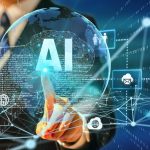Artificial Intelligence A Game-Changer or a Threat?
Understanding Artificial Intelligence: A Comprehensive Guide
Artificial Intelligence (AI) is revolutionizing industries and daily life, offering unprecedented opportunities and challenges.
Introduction
Artificial Intelligence (AI) has transitioned from a futuristic concept to a tangible force shaping various aspects of modern life. From virtual assistants to autonomous vehicles, AI’s influence is pervasive and growing. This article delves into the essence of AI, its historical evolution, core components, applications, benefits, challenges, and future prospects.
Defining Artificial Intelligence
Artificial Intelligence refers to the simulation of human intelligence processes by machines, particularly computer systems. These processes include learning (acquiring information and the rules for using it), reasoning (using rules to reach approximate or definite conclusions), and self-correction. AI encompasses various subfields, including machine learning, neural networks, and deep learning.
Historical Evolution of AI
The journey of AI began in the mid-20th century:
- 1950s: Alan Turing introduced the concept of machines that could think, leading to the Turing Test as a measure of machine intelligence.
- 1956: The term “Artificial Intelligence” was coined at the Dartmouth Conference, marking the official birth of AI as a field of study.
- 1970s-1980s: The AI field experienced periods of optimism and funding, followed by “AI winters” due to unmet expectations.
- 1990s-Present: Advances in computational power, data availability, and algorithms have led to significant breakthroughs, making AI integral to various technologies.
Core Components of AI
AI systems are built upon several foundational components:
- Machine Learning (ML): Enables systems to learn from data and improve over time without explicit programming.
- Neural Networks: Modeled after the human brain, these networks process data through interconnected nodes, facilitating pattern recognition.
- Deep Learning: A subset of ML involving neural networks with multiple layers, allowing for the processing of complex data inputs.
- Natural Language Processing (NLP): Enables machines to understand and respond to human language, powering applications like chatbots and language translation.
Applications of AI
AI’s versatility is evident across numerous sectors:
- Healthcare: AI assists in diagnostics, personalized treatment plans, and predictive analytics for disease outbreaks.
- Finance: Utilized for fraud detection, risk assessment, and algorithmic trading.
- Transportation: Powers autonomous vehicles, optimizing routes, and enhancing safety features.
- Retail: Enables personalized shopping experiences, inventory management, and demand forecasting.
- Entertainment: Recommends content, generates music, and enhances gaming experiences.
Benefits of AI
The integration of AI offers several advantages:
- Efficiency: Automates repetitive tasks, allowing humans to focus on complex problem-solving.
- Accuracy: Reduces human error in data-intensive tasks, leading to more reliable outcomes.
- Innovation: Drives the development of new products and services, fostering economic growth.
Challenges and Ethical Considerations
Despite its benefits, AI presents challenges:
- Bias: AI systems can perpetuate existing biases present in training data, leading to unfair outcomes.
- Privacy: The extensive data collection required for AI raises concerns about user privacy and data security.
- Job Displacement: Automation may lead to job losses in certain sectors, necessitating workforce reskilling.
The Future of AI
The trajectory of AI points toward continued integration into daily life:
- Advancements: Ongoing research aims to create more general AI systems capable of performing a wider range of tasks.
- Regulation: Governments and organizations are developing frameworks to ensure ethical AI development and deployment.
- Collaboration: Interdisciplinary efforts are essential to address AI’s societal impacts and maximize its benefits.
Artificial Intelligence stands at the forefront of technological innovation, offering transformative potential across various domains. Understanding its fundamentals, applications, and implications is crucial as society navigates the complexities of an AI-driven future. Embracing AI responsibly will be key to harnessing its full potential for the betterment of humanity.































